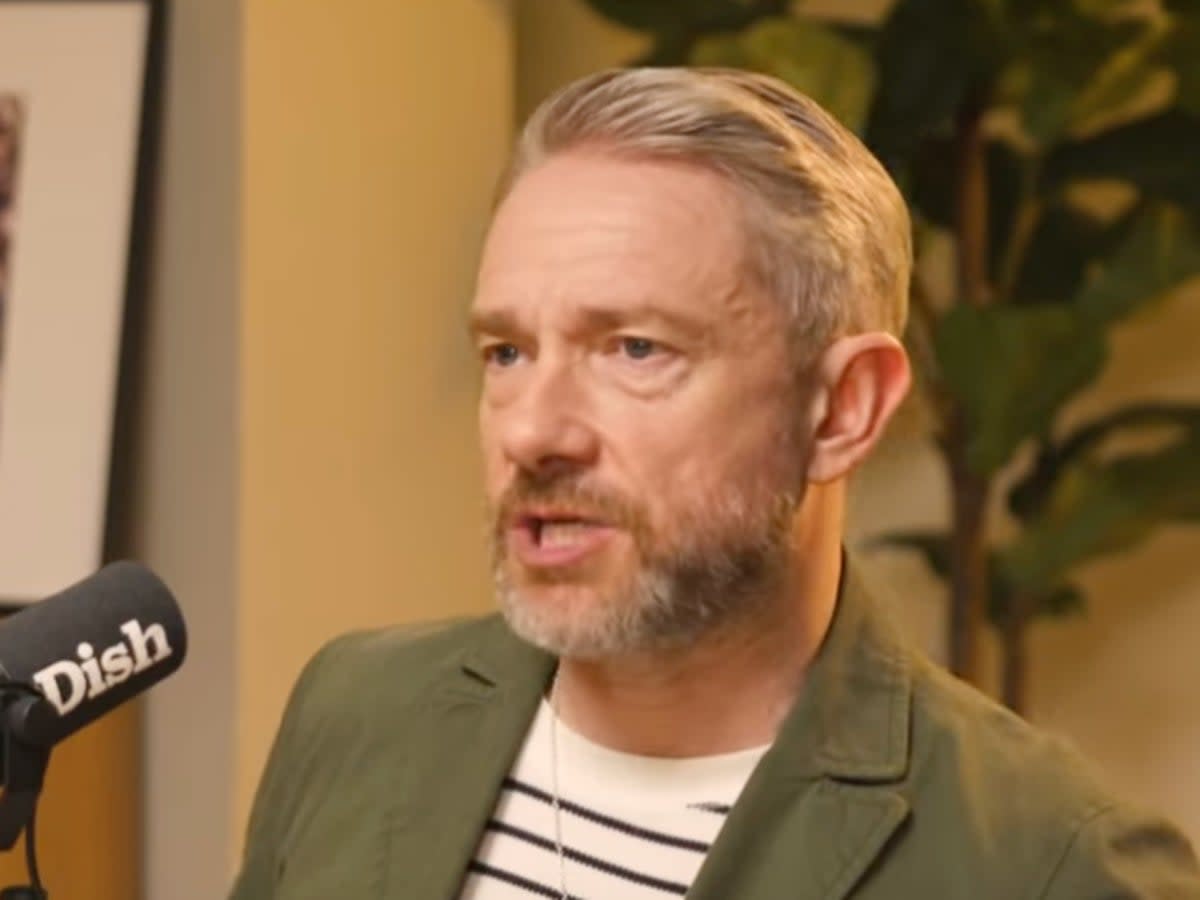Martin Freeman turns his back on vegetarianism after 38 years
Martin Freeman has given up on vegetarianism after 38 years, blaming processed foods for the switch.
The 52-year-old Sherlock and Hobbit actor first stopped eating meat in January 1986 after saying he was “never really comfortable with the idea of eating animals”.
Discussing the change on a new podcast with radio presenter Nick Grimshaw and professional chef Angela Hartnett, the actor said: “I’ve now come off being a vegetarian.”
The Emmy and Bafta award-winning actor added that he was still getting used to the freedom.
“In the last several months, it’s really new going back to being an omnivore, just sort of eating what I like,” he told Dish.
Freeman joined author Tony Schumacher as the group tucked into an Italian Bolognese – and it marked the father-of-two’s first time trying the dish.
“This is the first proper Bolognese, I’ve maybe ever had,” he said, adding “I’ve not had that good honest f***ing staple for decades.”
Explaining the reasons behind the lifestyle change, the Office star shared, “It’s a funny one, because I like meat replacement things, but my reservation about them is they can be very, very processed and I’m trying to eat less processed food.”

It comes as calls have increased for plant-based foods to be labelled with warning signs after an academic study recommended that people should be made aware of products that are ultra-processed when picking alternatives to meat, cheese, eggs and yoghurt.
Freeman went on to describe scotch eggs and pork pies as “food of the gods”, however his comments have drawn some criticism from campaigners.
Richard McIlwain, Chief Executive of Vegetarian Society, told MailOnline: “For me it feels odd. It feels like he’s just giving into his meaty cravings.
“Where he talks about tucking into a scotch egg and a pork pie, he should know that they’re just as ultra-processed.”
A study by the British Medical Journal reported exposure to ultra-processed foods can increase the risk of cancer, adverse mental health, type 2 diabetes and even early death.
In the UK and US, half the average person’s diet now consists of UPF according to the latest data. Amongst younger people and those on lower-incomes, this increases to as much as 80 per cent.






